Bryophyte-Lichen Identification 10X Loupe
SKU: 23201-5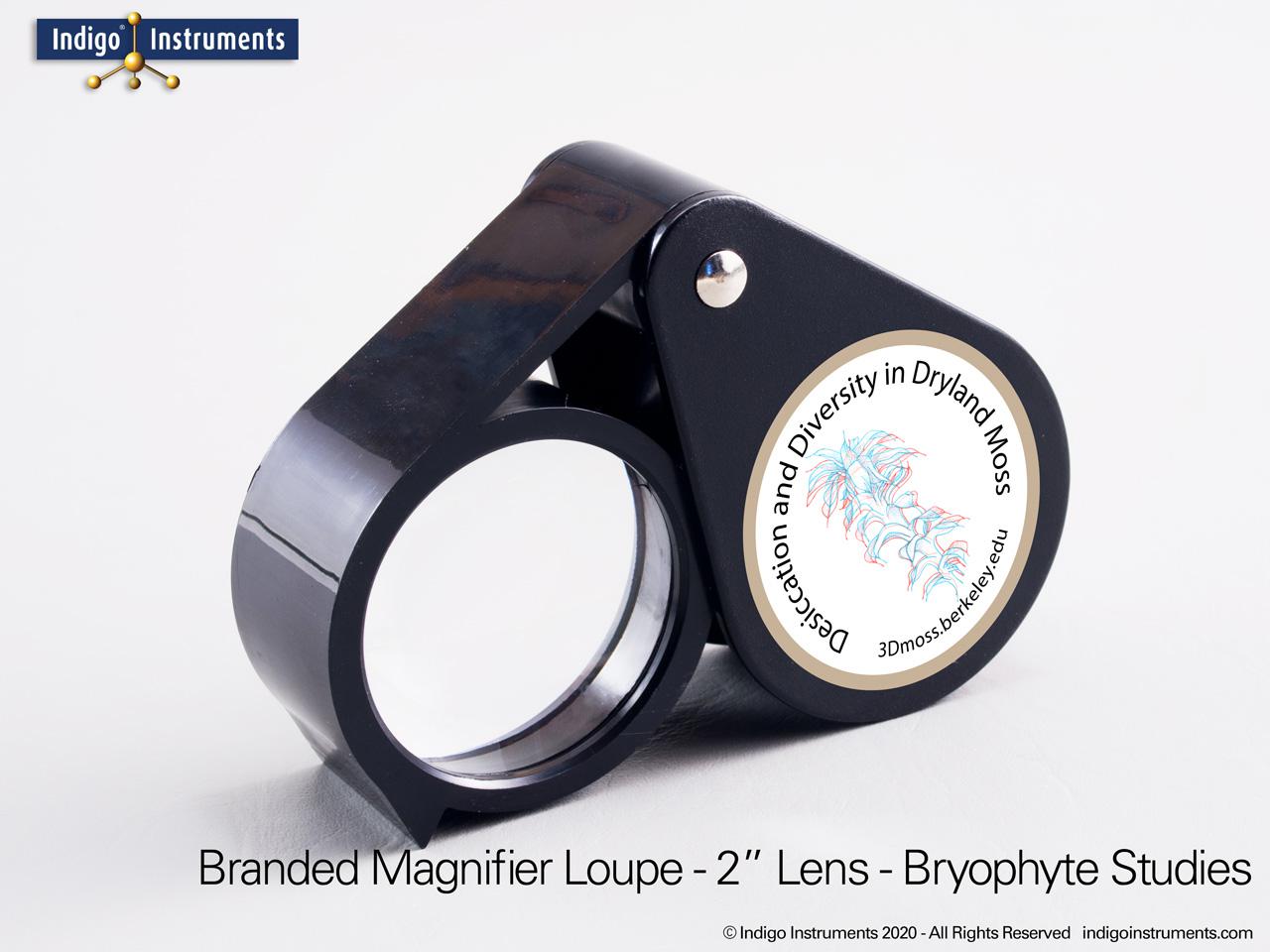
Prof. Kirsten Fisher at California State U. in LA ran a workshop on biological soil crusts where she & colleagues studied lichens and mosses in situ using our 10X 50mm folding magnifier. Brytophytes are non-vascular plants that include the liverworts, hornworts and mosses. In Prof. Fisher's words: "We didn't want to collect anything or disturb the crusts, so the large lenses were perfect for non-destructive observations."
These magnifiers were used to study the ecophysiology & desiccation tolerance of desert mosses in the genus Syntrichia. They also useful in examining translucent quartz pebbles that shade bryophytes.
A stylized rendering of one is displayed on the magnifier using a decal (sticker). Add your field study theme or educational brand logo to make a school promotional tool for pennies more.
Read the full, genuine Google Review from Gene H. "I rarely provide a review, but...service and quality of the loupes...are of outstanding quality."
We've offered this quality loupe since 2002. Buy several & our delivered cost beats "free" shipping!
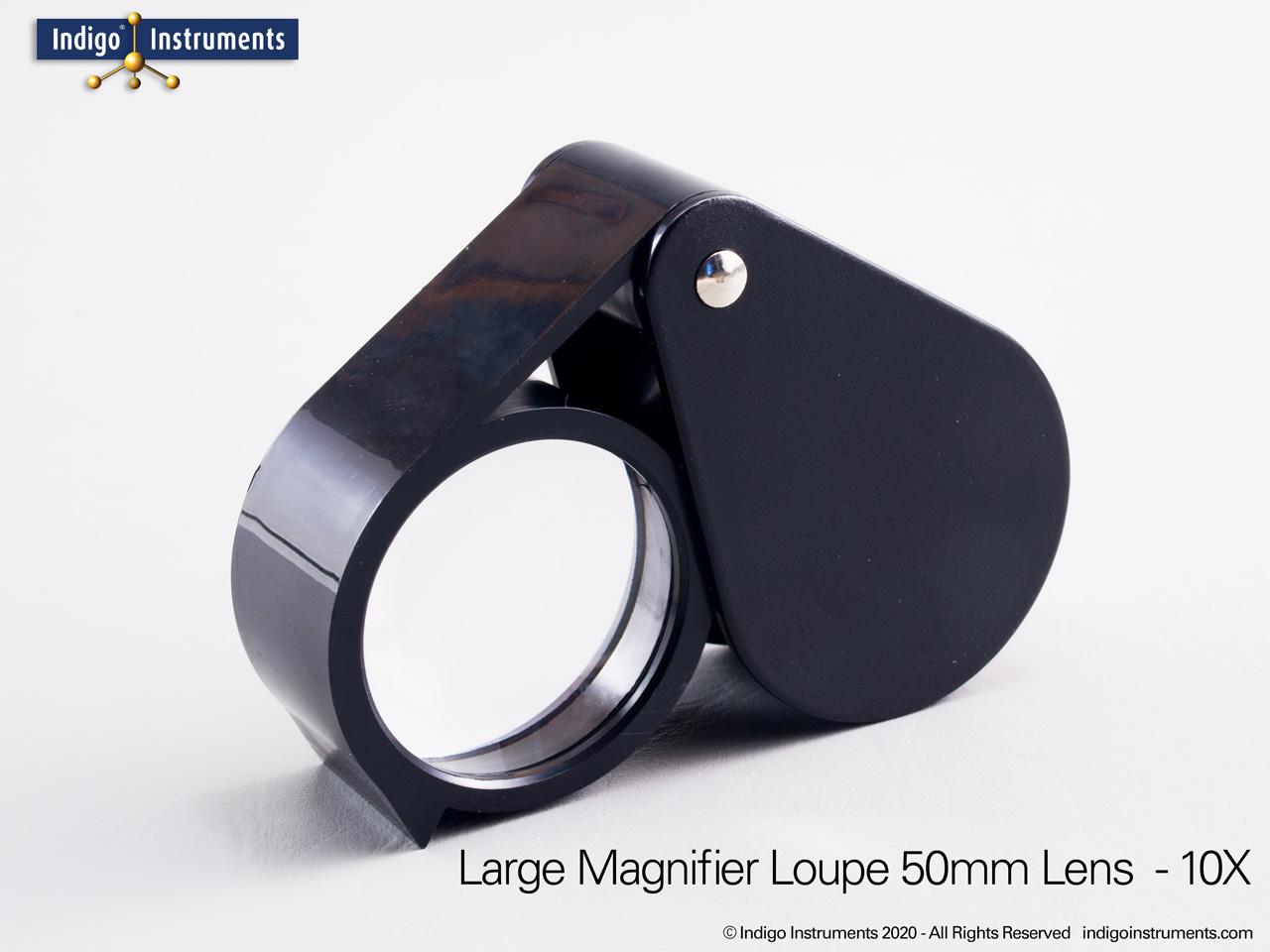


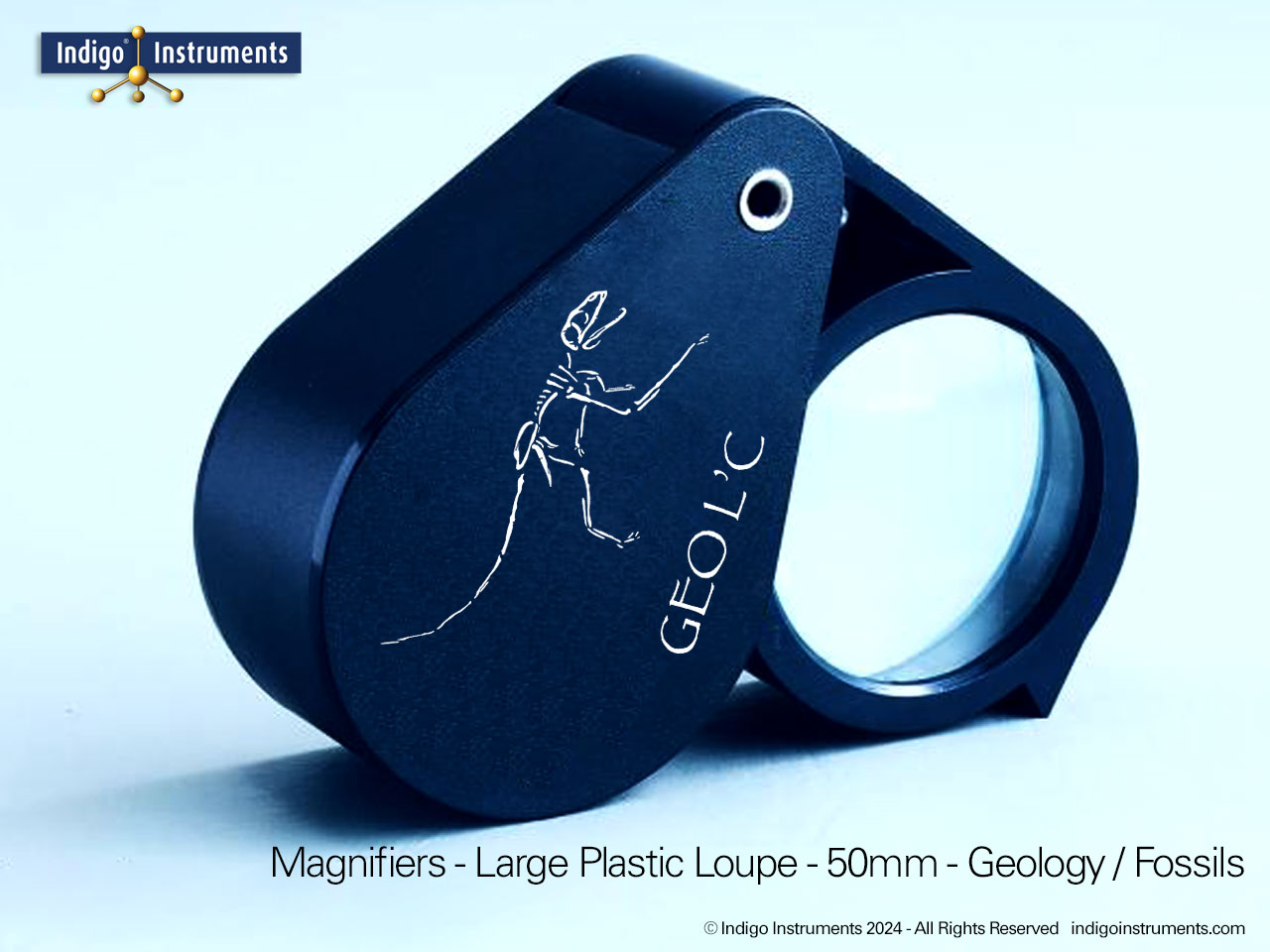
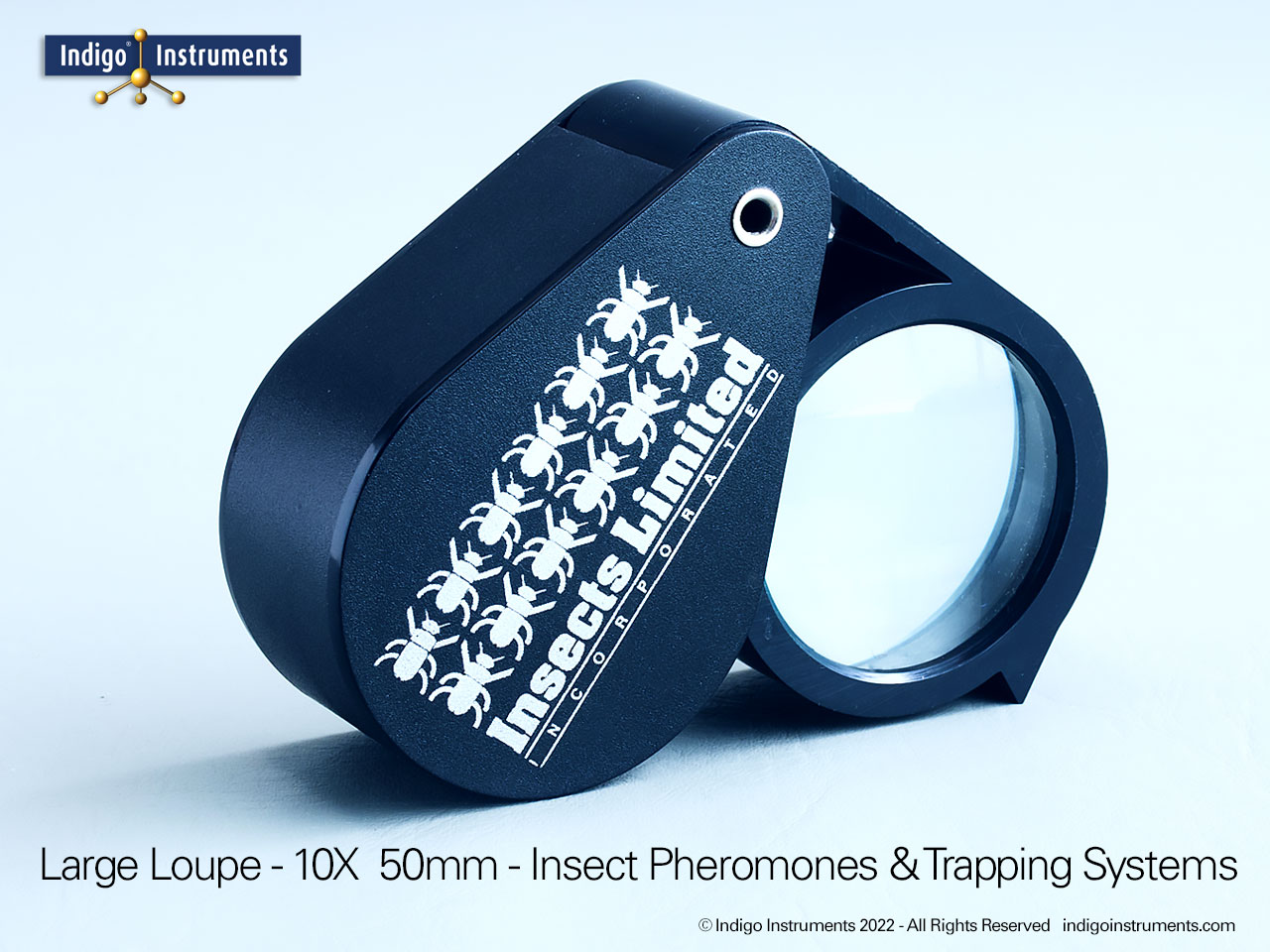

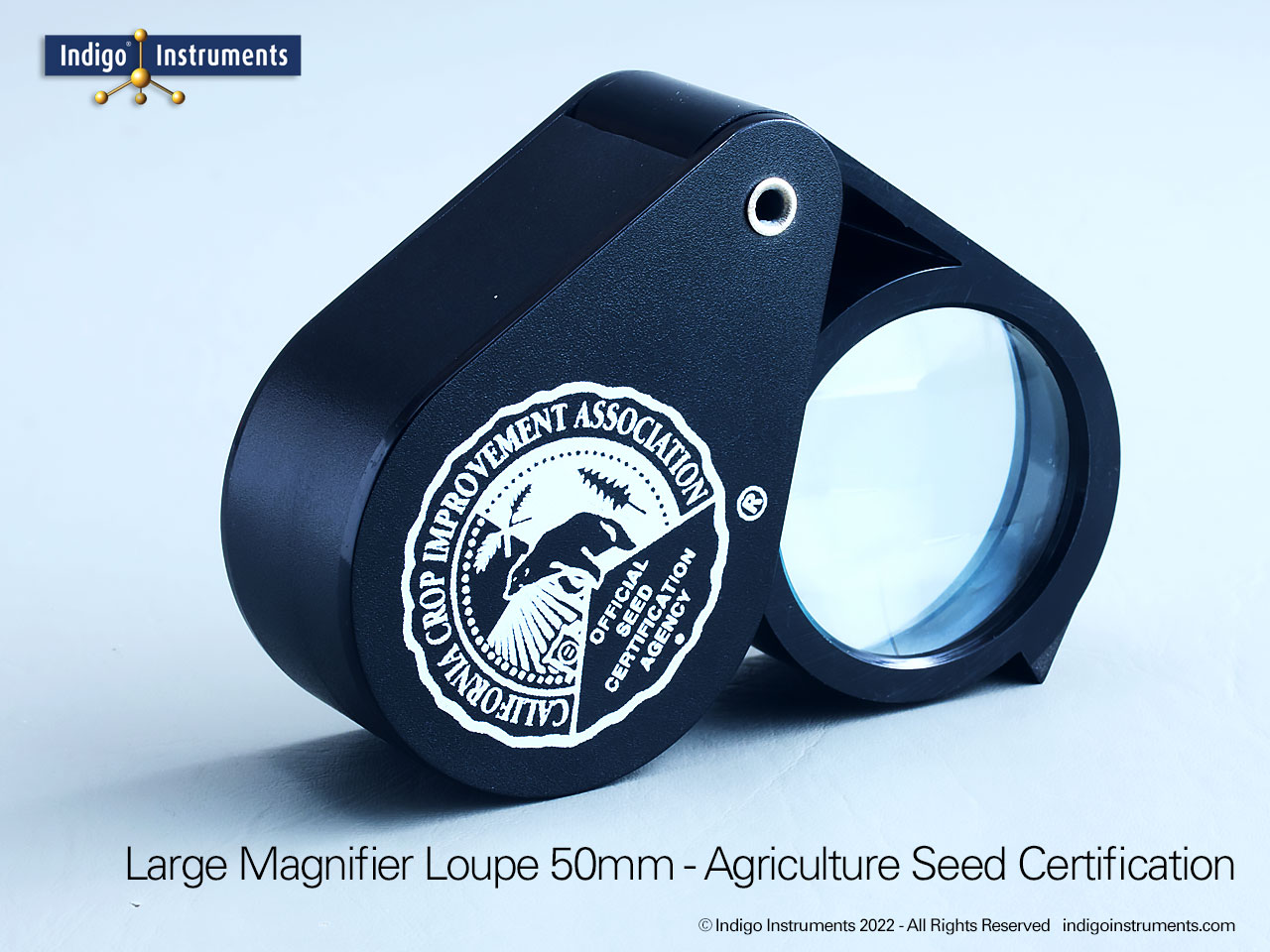
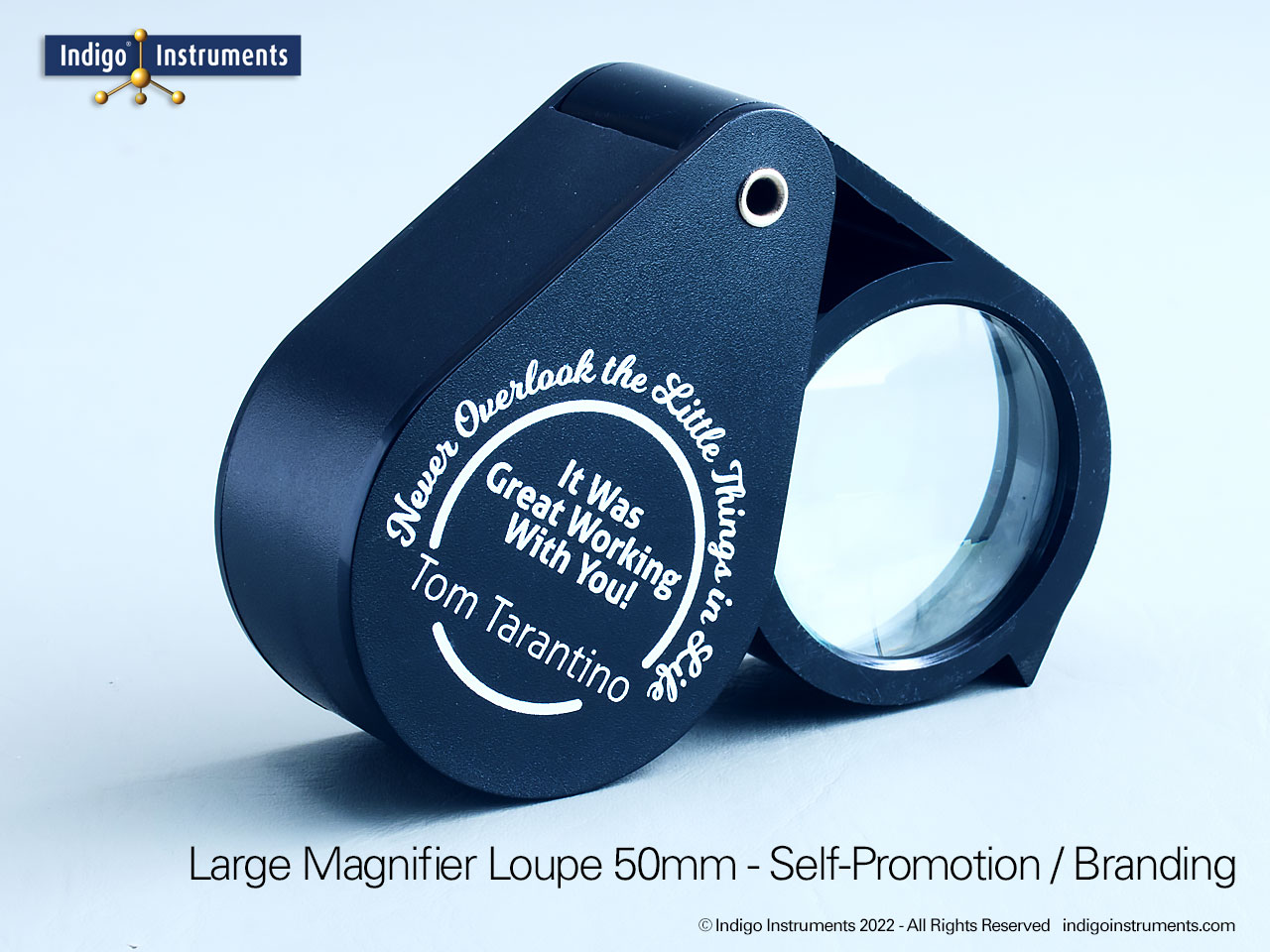
Thanks for review & feedback. This is an unusual magnifier since 10X loupes are only ~20mm diameter. We have an older blog,?What Magnifying Glass Do I Need for Biology?, that some might find useful.